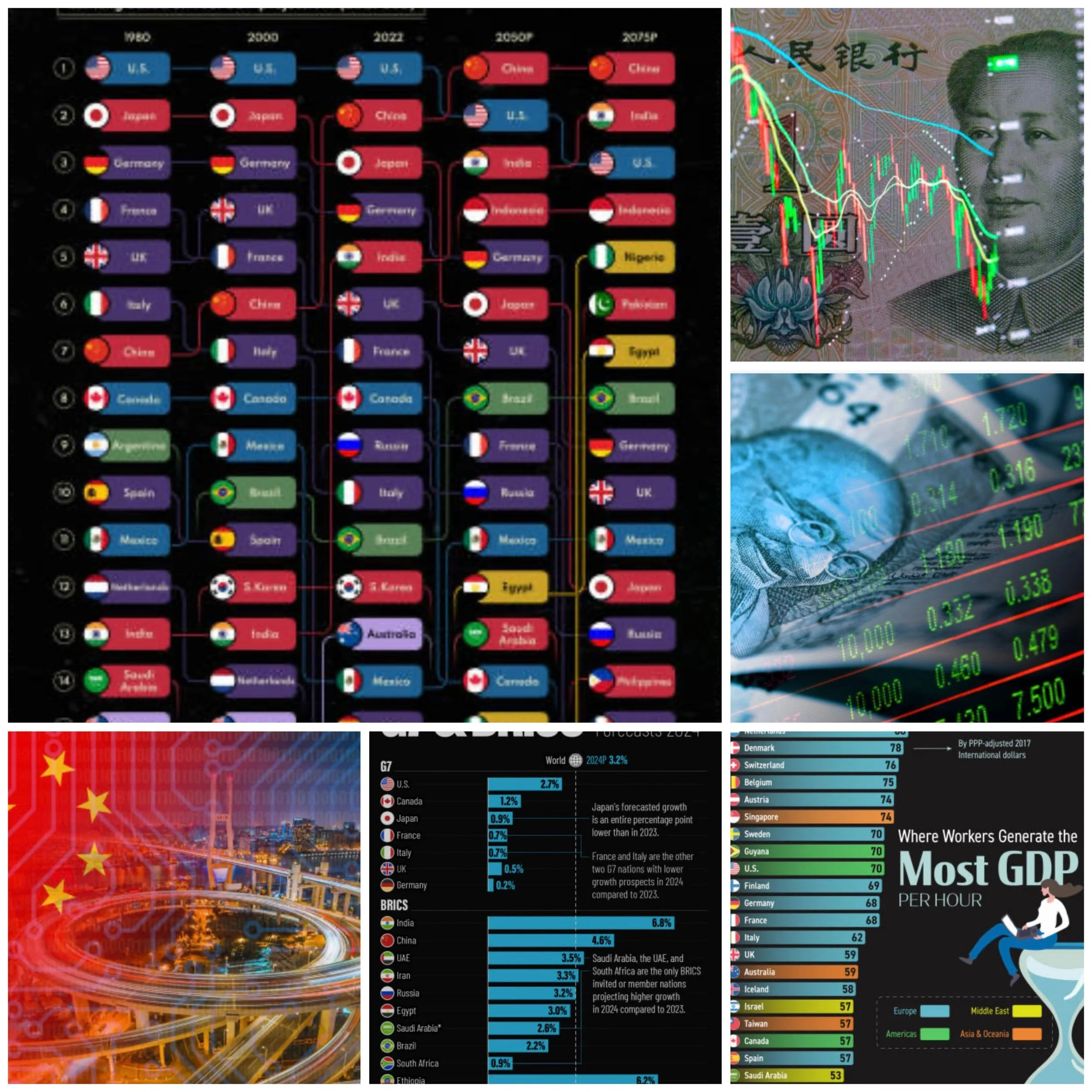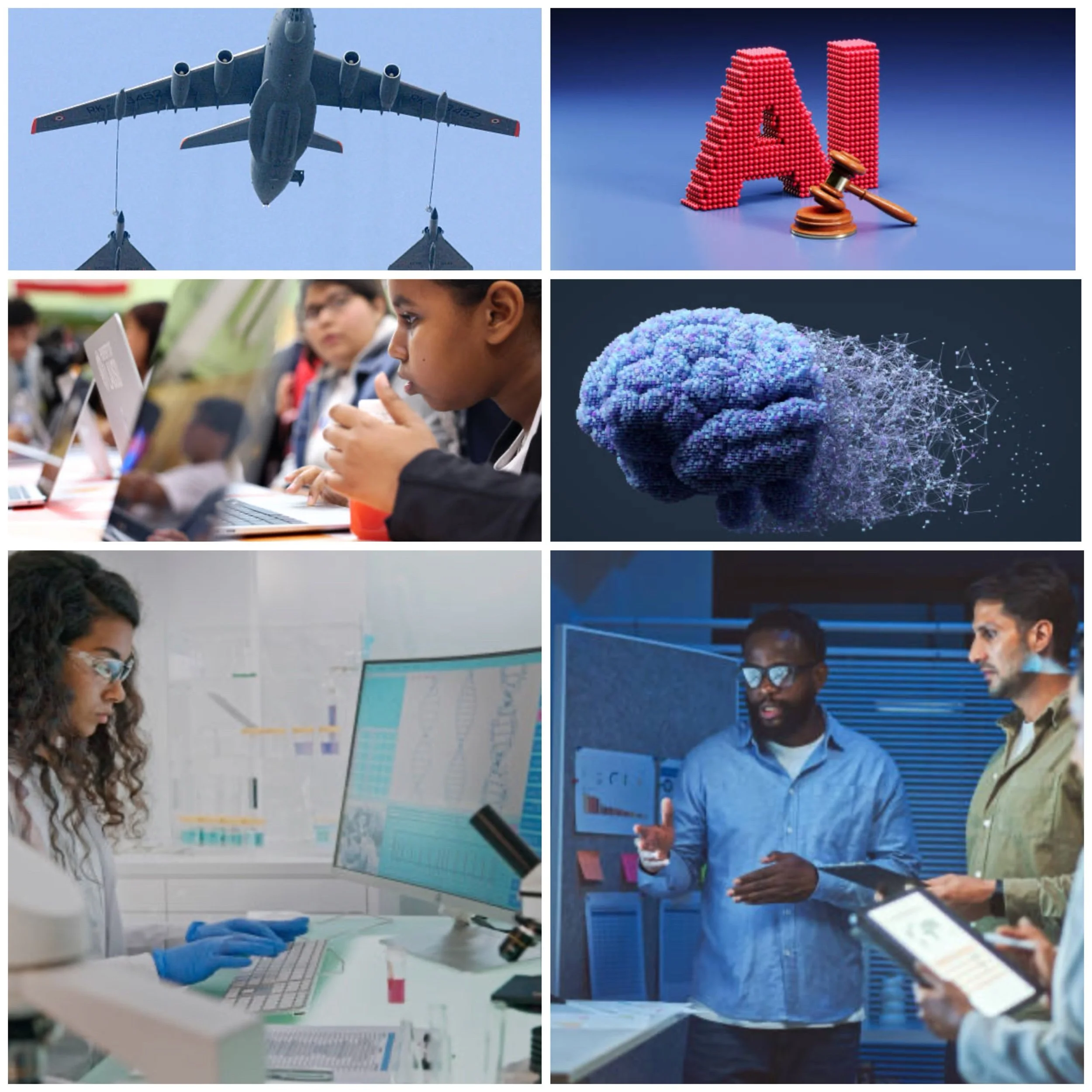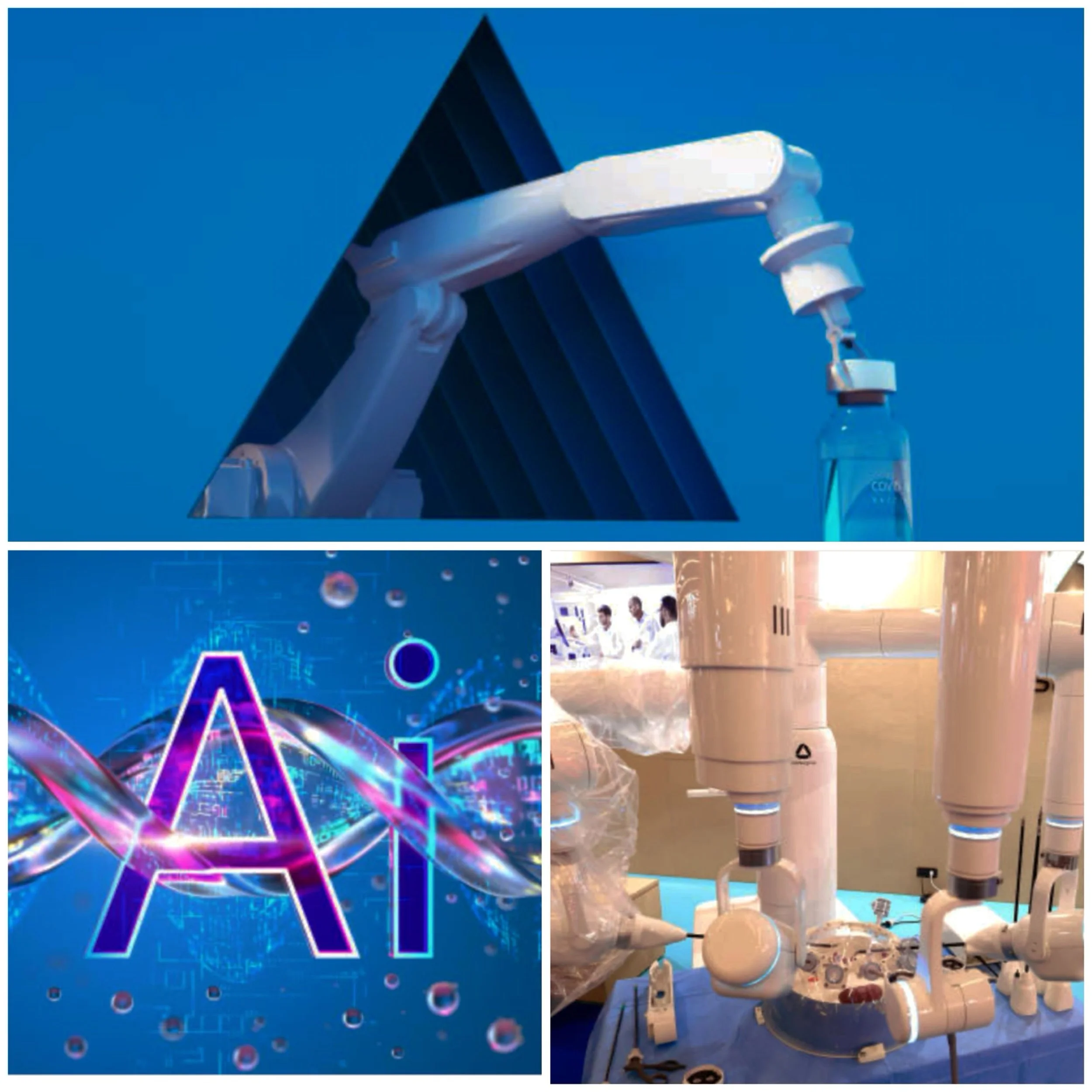The AI Revolution in China Shaping the Future with Innovative Projects
Introduction
In recent years, China has emerged as a powerhouse in the field of artificial intelligence (AI). The country's ambitious AI projects are revolutionizing industries and setting new standards for technological advancement. This blog post explores China's current roadmap for AI development, highlighting key initiatives, their impact on various sectors, and what it means for the global landscape. Whether you're a tech enthusiast, a business leader, or someone curious about the future, read on to discover the fascinating world of AI in China.
The Rise of AI in China
China's rise as an AI leader is no accident. The government has invested heavily in research and development, aiming to become the world leader in AI by 2030. This strategic focus has led to significant advancements across multiple domains. In this section, we'll explore the factors that have contributed to China's rapid AI growth, including its supportive policies, vast data resources, and a thriving tech ecosystem.
China's government has implemented supportive policies to foster AI innovation. In 2017, they unveiled the New Generation Artificial Intelligence Development Plan, which outlines ambitious goals for AI research, talent cultivation, and industry applications. By creating a favorable environment for AI development, China is positioning itself at the forefront of global innovation.
One of China's key advantages in AI development is its access to vast amounts of data. With a population of over 1.4 billion people generating massive data daily, Chinese companies can leverage this wealth of information to train AI algorithms effectively. This data advantage enables more accurate predictions, enhanced machine learning models, and improved AI performance.
China boasts a vibrant tech ecosystem with numerous companies driving AI innovation. Tech giants like Baidu, Alibaba, and Tencent are investing heavily in AI research and development, creating cutting-edge technologies and applications. Additionally, startups and research institutions across the country are contributing to the rapid advancement of AI, further fueling China's AI revolution.
AI in Healthcare Revolutionizing Patient Care
The healthcare sector is experiencing a profound transformation with the integration of AI technologies in China. AI is enhancing patient care, diagnosis, and treatment outcomes. In this section, we'll explore how AI is being used to revolutionize healthcare, from medical imaging and diagnostics to personalized medicine and telemedicine solutions.
AI-powered medical imaging is revolutionizing diagnostics in China. Advanced algorithms can analyze medical images such as X-rays and MRIs with incredible accuracy, assisting radiologists in detecting abnormalities and diagnosing diseases. This technology enables faster and more precise diagnoses, improving patient outcomes and reducing the burden on healthcare professionals.
Personalized medicine is another area where AI is making significant strides. By analyzing vast amounts of patient data, AI algorithms can identify patterns and correlations, enabling healthcare providers to tailor treatment plans to individual patients. This approach leads to more effective therapies, minimized side effects, and improved patient satisfaction.
Telemedicine solutions powered by AI are bridging the gap between patients and healthcare providers in China. Virtual consultations, remote monitoring, and AI chatbots are providing accessible and convenient healthcare services, especially in remote areas. These technologies enhance healthcare accessibility, efficiency, and overall patient experience.
AI in Transportation Transforming the Way We Move
The transportation sector in China is undergoing a revolution powered by AI technologies. From autonomous vehicles to intelligent traffic management systems, AI is transforming the way people and goods move. In this section, we'll explore China's AI initiatives in transportation, highlighting their impact on road safety, efficiency, and sustainability.
Autonomous vehicles are at the forefront of AI-driven transportation in China. Companies like Baidu and Pony.ai are developing self-driving cars that leverage AI algorithms to perceive the environment, make decisions, and navigate complex road conditions. These vehicles have the potential to improve road safety, reduce congestion, and revolutionize urban mobility.
Intelligent traffic management systems powered by AI are optimizing traffic flow in Chinese cities. By analyzing real-time data from sensors, cameras, and GPS devices, these systems can dynamically adjust traffic signals, optimize routes, and reduce congestion. The result is smoother traffic flow, shorter travel times, and enhanced urban mobility.
AI is also playing a crucial role in logistics and supply chain management in China. Automated warehouses, predictive analytics, and route optimization algorithms are streamlining operations, reducing costs, and improving delivery efficiency. These advancements are revolutionizing the transportation industry and driving economic growth.
AI in Finance Redefining the Financial Landscape
China's financial sector is experiencing a digital transformation driven by AI technologies. From fraud detection and risk assessment to personalized financial services, AI is reshaping the way financial institutions operate. In this section, we'll explore how AI is being leveraged in China's finance industry, enhancing efficiency, security, and customer experience.
AI-powered fraud detection systems are revolutionizing the fight against financial crimes in China. By analyzing vast amounts of transactional data, machine learning algorithms can identify patterns indicative of fraudulent activities, enabling timely intervention. This technology enhances security, protects customers, and reduces losses for financial institutions.
Risk assessment is another area where AI is making significant contributions. By analyzing historical data, market trends, and economic indicators, AI algorithms can assess creditworthiness and predict potential risks. This enables financial institutions to make informed decisions, minimize losses, and optimize their risk management strategies.
AI is also transforming the customer experience in the finance industry. Chatbots, virtual assistants, and personalized recommendation systems are providing seamless and tailored services to customers. These technologies enhance customer satisfaction, improve engagement, and drive business growth.
AI in Manufacturing Revolutionizing Production Processes
The manufacturing sector in China is undergoing a profound transformation driven by AI technologies. From robotics and automation to predictive maintenance and quality control, AI is revolutionizing production processes. In this section, we'll explore how AI is being applied in China's manufacturing industry, enhancing efficiency, productivity, and competitiveness.
Robotics and automation are transforming manufacturing operations in China. AI-powered robots are performing complex tasks with precision and efficiency, reducing the need for manual labor and increasing productivity. These robots can assemble products, perform quality inspections, and even collaborate with human workers, leading to improved production outcomes.
Predictive maintenance powered by AI is revolutionizing equipment maintenance in Chinese factories. By analyzing sensor data and historical patterns, AI algorithms can predict equipment failures and schedule maintenance proactively. This minimizes downtime, reduces maintenance costs, and ensures smooth production operations.
AI-driven quality control systems are enhancing product quality and consistency in China's manufacturing industry. By analyzing visual data and monitoring production processes, AI algorithms can detect defects, deviations, and anomalies in real-time. This ensures high-quality products, reduces waste, and strengthens customer satisfaction.
AI in Education Transforming Learning Experiences
The education sector in China is witnessing a paradigm shift with the integration of AI technologies. From personalized learning and intelligent tutoring systems to administrative automation and data analytics, AI is transforming the way education is delivered. In this section, we'll explore China's AI initiatives in education and their impact on student outcomes and educational institutions.
Personalized learning powered by AI is revolutionizing education in China. Intelligent tutoring systems adapt the learning experience to individual students, identifying their strengths and weaknesses and tailoring educational content accordingly. This personalized approach maximizes student engagement, comprehension, and academic achievement.
Administrative automation is streamlining educational processes in Chinese institutions. AI-powered systems handle tasks such as student registration, attendance tracking, and grading, freeing up educators' time for meaningful interactions with students. This automation increases efficiency, reduces administrative burden, and enhances overall educational quality.
Data analytics and AI algorithms are transforming educational decision-making in China. By analyzing student performance data, attendance records, and other metrics, educational institutions can gain valuable insights to improve curriculum design, resource allocation, and student support services. This data-driven approach enhances educational outcomes and institutional effectiveness.
AI Ethics and Regulations Navigating Challenges and Opportunities
As AI technologies continue to advance, ethical considerations and regulations play a crucial role in shaping their development and deployment. In this section, we'll explore the ethical challenges and regulatory frameworks surrounding AI in China, highlighting the importance of responsible AI practices and ensuring fairness, transparency, and accountability.
Ethical considerations in AI development are a top priority in China. Issues such as bias, privacy, and algorithmic transparency require careful attention to ensure fairness and prevent discrimination. By addressing these challenges, China aims to build trust in AI technologies and promote their responsible use.
Regulatory frameworks in China are evolving to govern AI technologies. The government is implementing policies to address privacy concerns, data protection, and algorithmic accountability. These regulations aim to strike a balance between innovation and ethical standards, fostering a safe and trustworthy AI ecosystem.
Collaboration between policymakers, researchers, and industry leaders is crucial to navigating the ethical and regulatory landscape of AI in China. By fostering dialogue and sharing best practices, stakeholders can work together to shape responsible AI policies that promote innovation while safeguarding societal values.
AI and Global Collaboration China's Role on the World Stage
China's advancements in AI are not only shaping its domestic landscape but also influencing global collaboration and cooperation. In this section, we'll explore China's role in international AI initiatives, collaborations with other countries, and the potential impact on global innovation and technological progress.
China is actively engaging in international AI collaborations to drive global innovation. By partnering with countries, organizations, and research institutions worldwide, China is fostering knowledge exchange, joint research projects, and technological advancements. These collaborations strengthen global AI capabilities and promote mutual growth.
Through initiatives like the Belt and Road Initiative, China is leveraging AI technologies to enhance connectivity, infrastructure, and economic development in participating countries. This global collaboration creates opportunities for shared knowledge, resources, and technological advancements, benefiting both China and its partners.
China's leadership in AI has the potential to shape global standards and frameworks. By actively participating in international discussions on AI ethics, governance, and policy, China can contribute to the development of global guidelines that ensure the responsible and beneficial use of AI technologies worldwide.
The Future of AI in China Unlocking Limitless Possibilities
The future of AI in China presents exciting possibilities for innovation, economic growth, and societal advancement. In this section, we'll explore the potential future trends in AI development, emerging technologies, and the impact on various sectors. Discover how China is positioning itself to lead the AI revolution and shape a future where AI becomes an integral part of everyday life.
Emerging technologies such as edge computing, quantum computing, and AI-driven Internet of Things (IoT) are set to transform the AI landscape in China. These technologies offer enhanced processing power, connectivity, and data analysis capabilities, unlocking new possibilities for AI applications across industries.
AI-powered smart cities are on the horizon in China. By integrating AI technologies into urban infrastructure, transportation systems, and public services, China aims to create sustainable and efficient cities. These smart cities will improve quality of life, reduce environmental impact, and enhance urban management.
China's commitment to AI research and development positions it as a global leader in the AI revolution. With continuous investments in talent cultivation, research institutions, and industry collaborations, China is paving the way for groundbreaking advancements that will shape the future of AI and redefine societal norms.
Conclusion
China's AI projects on the current roadmap are propelling the country to the forefront of global innovation. From healthcare and transportation to finance and manufacturing, AI is revolutionizing industries and transforming the way we live and work. By leveraging AI technologies, China is enhancing efficiency, improving decision-making, and driving economic growth. However, ethical considerations and international collaboration remain crucial to ensure responsible AI development. As China continues to lead the AI revolution, the possibilities for innovation and societal advancement are limitless. Stay informed, stay inspired, and be prepared to witness the incredible impact of AI in China and beyond.






